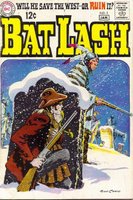
I have not talked much about the funny animal comics thus far on the blog, so today I'd like to take a look at one of the longest-running and best comics featuring funny animals, Walt Disney's Comics & Stories. Disney, then as now, was a huge brand name for kids, signifying high quality and generally wholesome fare. The comics were marketed by Dell, which is still a major magazine publisher, although they got out of the comics business a long time ago.
The WDC&S issues came out monthly and featured a mostly unvarying lineup: A new Donald Duck story leading off the mag, some filler gag strips from the 1930s, a couple of backup features and a Mickie Mouse serial adventure.
The inside front cover has a reprinted gag from a Sunday Donald Duck story. Donald encounters a weeping child who is apparently lost. Donald escorts him around the block, past an ice cream parlor (where the kid gets a cone), a popcorn vendor (where the kid gets a box), and a candy story (where the kid gets a lollipop). And in the end, the kid tells Donald that his home is right there, where they started.
This is pretty typical of the Donald Duck shorts, where Donald almost always ends up getting fleeced by somebody.
The main story is a Carl Barks' DD adventure. Barks is one of the acknowledged geniuses of comics, a gifted writer and cartoonist who made Donald and his Uncle Scrooge into classics. In this story, Donald's young nephews are commenting on the success of all their friend's fathers, as compared to their lowly uncle:

Heheh. But it turns out that he's already lost that job, and has started as a baker. Here he's got a real chance to last for a week, as the owner is out of town for that long. So the boys--errr, ducklings decide to help him out, which proves difficult. At first, Donald scrimps on ingredients, and his biscuits turn out like hockey pucks. Then he overdoes the ingredients and the results are nearly as disastrous:

In the finale, Donald cooks a pie for some performers to burst out of and sing a song. Unfortunately, he uses melted cheese instead of shortening, and the singers end up stuck in the pie crust, and so the end of the story has him and his nephews running for their lives from an angry mob.
The second story features Scamp. Scamp was a minor character in the Lady and the Tramp, a Walt Disney cartoon first released in 1955. He was the one of the Lady's puppies who took after his dad, the Tramp, as something of a mischievous dog. For whatever reason the concept took off and led to a daily comic strip and a Dell Comic of his own, in addition to this backup feature in WDC&S.
In the story in this issue, Scamp does not appreciate his master, and decides to search for adventure on his own. Of course, he discovers that life in the wild is not as romantic as it might sound and finds a new appreciation for the life of a pet.
The next story is Chip N Dale. The two chipmunks try to help a mother skunk, whose daughters have run off to see the world. Of course, young skunks discover that life in the wild is not as romantic as it might sound... wait a minute, isn't that the same lesson Scamp learned?
The text story concerns Uncle Scrooge and Huey, Dewey & Louie. The boys scheme to get Uncle Scrooge to buy their handmade valentines, but he refuses because nobody ever sends him one. So they get Donald and Goofy and Daisy and a bunch of other people to send him a valentine. Uncle Scrooge hires the boys to respond in kind and tells them to help themselves to anything in his desk they need, so they stuff each valentine with $100 bill, much to Scrooge's dismay when he learns.
A couple shorts strips fill a page, and then we get to the Mickey Mouse serial. This is apparently the last of a three-part story, where Mickey and Goofy have encountered some bank robbers while investigating the strange things that have been happening to animals in Lonely Valley. The bank robbers have been causing the strange things to happen; their boss has invented an odd ray that gives him control over dumb animals.

The bank robberies are intended to pay for further experiments to perfect it to the point where it works on "people". Of course there were no actual humans in Mickey's world, but there were human-like animals and dumb animals, so I presume he means the former. Eventually Mickey and Goofy get away and the bank robbers are captured, so the only thing that will bother the local animals is Goofy's cowboy getup.





